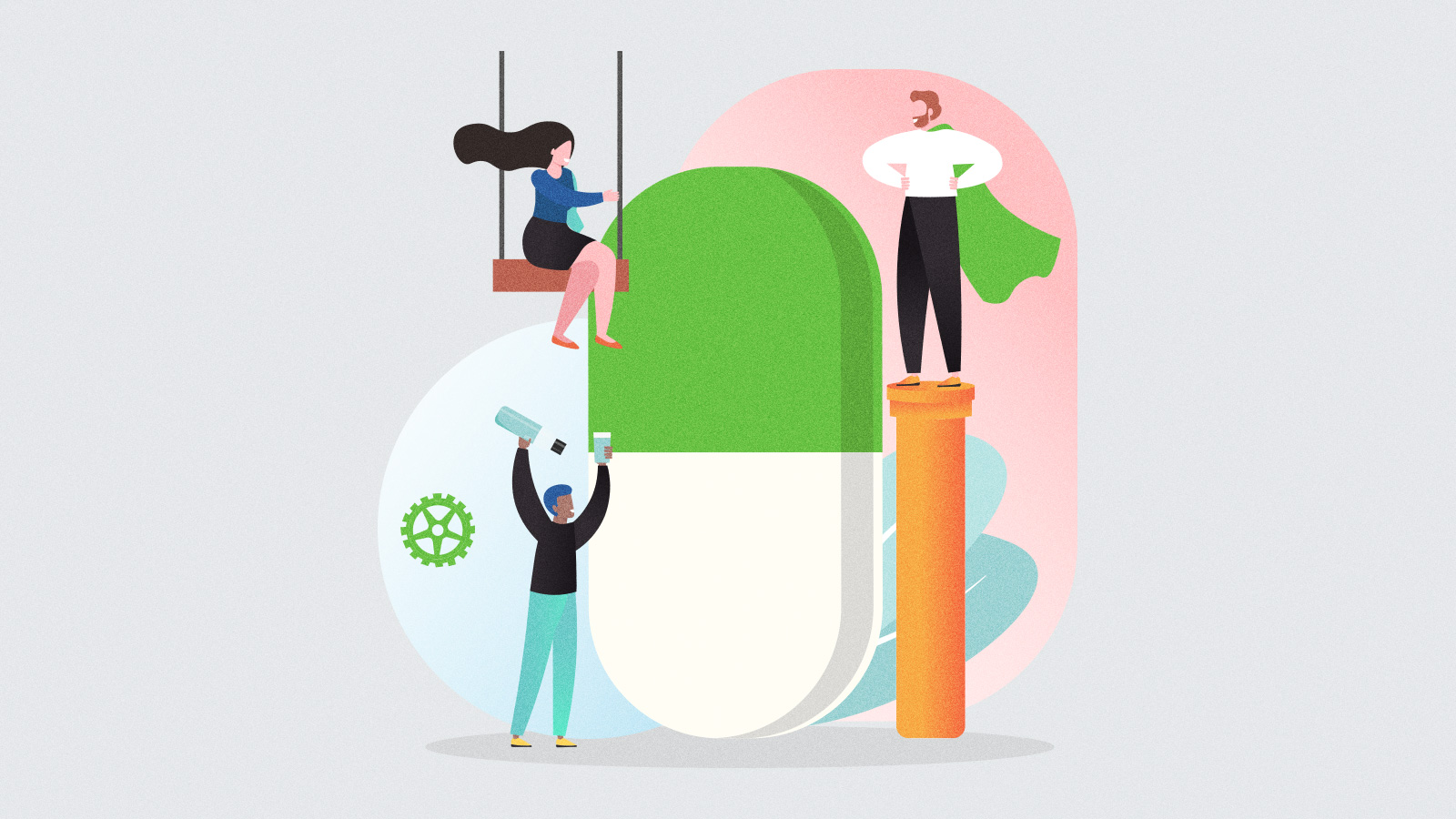Since the emergence of the pandemic, it’s no surprise that immunity and overall health has been front-of-mind more than ever before. Trends have evolved as consumers are increasingly turning to preventative measures to boost their health and stave off disease (Fullscript, 2020). They are actively seeking out functional products – particularly dietary supplements – that will support their health and give them peace of mind.
The year 2020 marked the highest growth in the nutritional supplement industry since 1997, with an estimated 12.1% increase for the year, according to the Nutrition Business Journal. And while this large growth is expected to dwindle down, the industry is still expected to continue to see a sustained lift in business in the upcoming years (Fullscript, 2020). While the end of the coronavirus pandemic is in sight, the impact of this disaster will have continuing ramifications in consumer behavior and purchasing trends for years to come. Consumers are now, more than ever, determined to put their health first, turning to supplements as an easy, straightforward way to improve their well-being, both mental and physical.
IMMUNITY
According to a 2020 Global Immune Health Supplements Market Report, the global immune health supplement market is expected to grow by 9% annually between 2019 and 2025. The lion’s share of this growth will be focused on preventative solutions – specifically, supplements that target immunity. According to Euromonitor (2019), about a fifth of global consumers use healthcare websites for advice and information on which supplements to consume, and 16% use social media, turning to the advice of wellness influencers (LSN Global, 2019).
Grocers predict that immunity-strengthening supplements will be one of the top-leading food trends for 2021 (Grocery Drive, 2020). Medicinal herbs, medicinal mushrooms, multivitamins, probiotics, zinc, and vitamins C and D have been especially popular. At the start of 2020, over 50% of consumers reported increasing their immune supplement consumption, and last March elderberry supplement sales alone went up 200% according to Nutrition Business Journal.
The New Hope Network reported on the emergence of a new concept known as “immune rejuvenation,” which centers on the idea that you can train for immunity by implementing healthy living recommendations such getting more sleep and exercise, reducing stress and overeating, cutting back on sweets and meat, and adding in more fiber and vegetables (New Hope, 2020). Daily immunity-boosting supplements would of course factor into this “rejuvenation” – as stated in PRNewswire (2020), “rather than trying to boost immunity when we’ve already fallen victim to whatever bug is going around, [consumers] have recognized the importance of “armoring up” and supporting [their] immune system on a daily basis so it can function optimally over the long haul.”
MENTAL HEALTH
Immunity isn’t the only health area brought into focus since the emergence of COVID. Mental health has emerged as a top concern among consumers – everything from fatigue, anxiety, stress, insomnia and depression. As stated in the Full Script blog (2020), “with the many routine disruptions and additional stressors resulting from the pandemic, including social isolation, supporting mental health has now become even more essential.”
These concerns around mental health are not specific to any one generation. According to Euromonitor’s 2020 Health and Nutrition survey (2020), approximately 66% of Baby Boomers and Generation X ranked mental wellbeing as the top meaning of health, followed by 64% of Millennials and 61% of Generation Z.
These consumer concerns are further reflected in recent supplement trends, with the mental health supplement market expected to grow at a rate of 8.5% in the next six years, reaching over $13 million USD in 2027 (Fullscript, 2020). Supplement ingredients in this category include L-theanine, ashwagandha, melatonin, CBD, Lion’s mane mushroom, Acetyl-L-carnitine (ALCAR), Alpha-GPC, Citicoline, Docosahexaenoic acid (DHA), B-complex vitamins, and herbal extracts such as chamomile, ginseng and ginkgo biloba.
“For 2016 and 2017, stress and sleep supplements were growing at a paltry 1% to 4%, according to Nutrition Business Journal. But 2018 and 2019 saw a quantum leap to between 12% and 18% sales growth. NBJ is estimating 2020 growth at a whopping 30%, with double-digit growth pegged for 2021 as well.”
– New Hope Network, 2020
In summary, the COVID-19 pandemic has emphasized the need for us all to prioritize our health. These supplement trends shine a light on the importance of mental well-being and health-driven lifestyles. So whether it be the apaptogenic benefits of mushrooms, the calming properties of CBD or the immunity-boosting power of vitamin C, functional supplements are here to stay.
